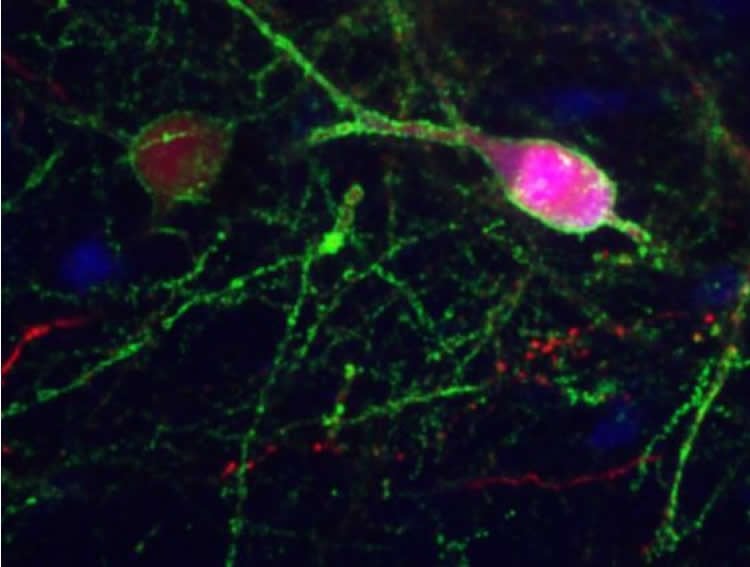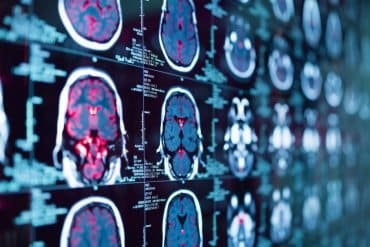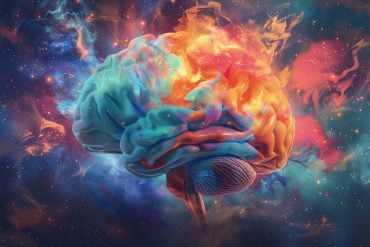Summary: Researchers at King’s College London have identified a molecular mechanism that allows neural connections to adapt as a result of experience. This adaptation fuels our ability for memory and learning.
Source: King’s College London.
Researchers from King’s College London have discovered a molecular mechanism that enables neuronal connections to change through experience, thus fuelling learning and memory formation. The findings are published in the journal Neuron and have the potential to reveal new therapeutic strategies for neurological and psychiatric disorders.
One of the most remarkable features of our brain is its ability to sense and interpret the complex environment of everyday life. To accomplish this, brain circuits undergo a process that involves experience-dependent plasticity, a fundamental mechanism through which the nervous system adapts to sensory experience and which is at the root of our capacity to learn as well as encode and retain memories. As an example, all babies are born with the capacity to develop language but their ability to communicate verbally will depend on their exposure to language during the early stages of development.
Impairment of experience-dependent plasticity has been shown to be a feature of many neurological and psychiatric disorders including depression, bipolar disorder and schizophrenia. As such, unravelling key molecular players in this form of plasticity may pave the way for new treatments.
Previous studies have shown that a special group of neurons present in the cerebral cortex called PV+ interneurons (a population of neurons that communicate with each other through deactivating chemical and electrical signals and express a protein called parvalbumin), are able to change in response to stimulus from the environment. However, until now the cellular and molecular mechanisms regulating this adaptability were largely unknown.
In their new study, the multidisciplinary team of researchers led by the Centre for Developmental Neurobiology (CDN) and MRC Centre for Neurodevelopmental Disorders (MRC CNDD) at the Institute of Psychiatry, Psychology & Neuroscience, found that this adaptability is shaped by a specific protein called Brevican. Moreover, loss of this protein leads to deficits in short-term spatial memory, the part of memory responsible for remembering different locations as well as spatial relations between objects.
Most PV+ interneurons are wrapped by a mesh of proteins called perineural nets and several studies have shown that these proteins play a critical role in the regulation of experience-dependent plasticity, learning and memory. However, the mechanisms through which these proteins mediate this process remained a mystery. In this new study, the researchers found that one of these proteins called Brevican, which is also one of the most abundant proteins found in the brain, influences neuronal plasticity, orchestrating a dedicated molecular program in response to changes from the environment. The researchers also found that this protein shapes the intrinsic properties of PV+ interneurons and sculpts their connections to other neurons. These novel findings show that Brevican is dynamically regulated by experiences coming from the environment and is fundamentally required for spatial working memory and short-term memories.

‘Perineuronal net proteins regulate cortical plasticity by acting on interneurons. When we identified some of the mechanisms underlying this regulation, I was amazed by how a single protein can act as an activity sensor, orchestrate such a complex molecular program and simultaneously influence several key cellular processes’, said Dr Emilia Favuzzi, first author of the study from the Centre for Developmental Neurobiology (CDN) at King’s College London.
Professor Beatriz Rico, senior author of the study also from the CDN and MRC CNDD at King’s, said: ‘Step by step we are building knowledge on how interneurons orchestrate the function of cortical networks. In this new work from the lab, we unveil part of the molecular program by which interneurons encode experience-dependent processes that impact cortical function and modify behaviour. We think that the identification of the relevant molecular mediators of this form of plasticity may offer novel therapeutic strategies to recover from deficits in perception, learning and memory associated with a range of diseases.’
Funding: This work was supported by grants from the European Research Council (ERC-2012-StG 310021) grant to B.R. E.F. was supported by JAE-Pre fellowship (CSIC) and King’s College London funds. BR is Wellcome Trust investigator.
Source: Jack Stonebridge – King’s College London
Image Source: NeuroscienceNews.com image is credited to King’s College London.
Original Research: Abstract for “Activity-Dependent Gating of Parvalbumin Interneuron Function by the Perineuronal Net Protein Brevican” by Emilia Favuzzi, André Marques-Smith8, Rubén Deogracias, Christian M. Winterflood, Alberto Sánchez-Aguilera, Laura Mantoan, Patricia Maeso, Cathy Fernandes, Helge Ewers, and Beatriz Rico in Neuron. Published online July 13 2017 doi:10.1016/j.neuron.2017.06.028
[cbtabs][cbtab title=”MLA”]King’s College London “How Neurons Sense Our Everyday Life.” NeuroscienceNews. NeuroscienceNews, 15 July 2017.
<https://neurosciencenews.com/neurons-memory-learning-7085/>.[/cbtab][cbtab title=”APA”]King’s College London (2017, July 15). How Neurons Sense Our Everyday Life. NeuroscienceNew. Retrieved July 15, 2017 from https://neurosciencenews.com/neurons-memory-learning-7085/[/cbtab][cbtab title=”Chicago”]King’s College London “How Neurons Sense Our Everyday Life.” https://neurosciencenews.com/neurons-memory-learning-7085/ (accessed July 15, 2017).[/cbtab][/cbtabs]
Abstract
Activity-Dependent Gating of Parvalbumin Interneuron Function by the Perineuronal Net Protein Brevican
Highlights
•PNN proteins gate classes of neurons to support experience-dependent plasticity
•The PNN protein Brevican modulates cellular and synaptic plasticity in PV+ cells
•Brevican levels are dynamically regulated by network activity
•Brevican is required for normal cognitive function
Summary
Activity-dependent neuronal plasticity is a fundamental mechanism through which the nervous system adapts to sensory experience. Several lines of evidence suggest that parvalbumin (PV+) interneurons are essential in this process, but the molecular mechanisms underlying the influence of experience on interneuron plasticity remain poorly understood. Perineuronal nets (PNNs) enwrapping PV+ cells are long-standing candidates for playing such a role, yet their precise contribution has remained elusive. We show that the PNN protein Brevican is a critical regulator of interneuron plasticity. We find that Brevican simultaneously controls cellular and synaptic forms of plasticity in PV+ cells by regulating the localization of potassium channels and AMPA receptors, respectively. By modulating Brevican levels, experience introduces precise molecular and cellular modifications in PV+ cells that are required for learning and memory. These findings uncover a molecular program through which a PNN protein facilitates appropriate behavioral responses to experience by dynamically gating PV+ interneuron function.
“Activity-Dependent Gating of Parvalbumin Interneuron Function by the Perineuronal Net Protein Brevican” by Emilia Favuzzi, André Marques-Smith8, Rubén Deogracias, Christian M. Winterflood, Alberto Sánchez-Aguilera, Laura Mantoan, Patricia Maeso, Cathy Fernandes, Helge Ewers, and Beatriz Rico in Neuron. Published online July 13 2017 doi:10.1016/j.neuron.2017.06.028






